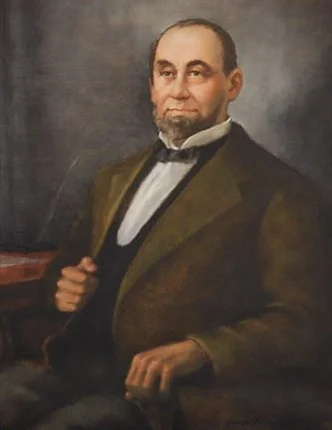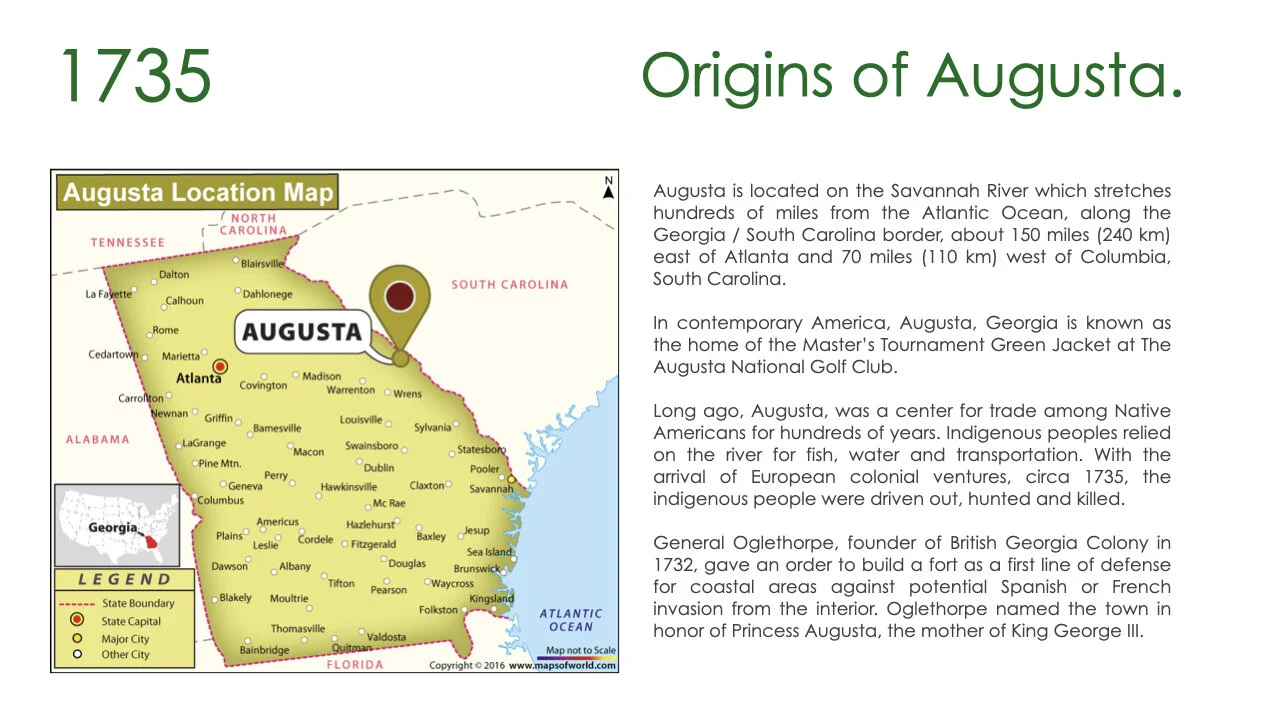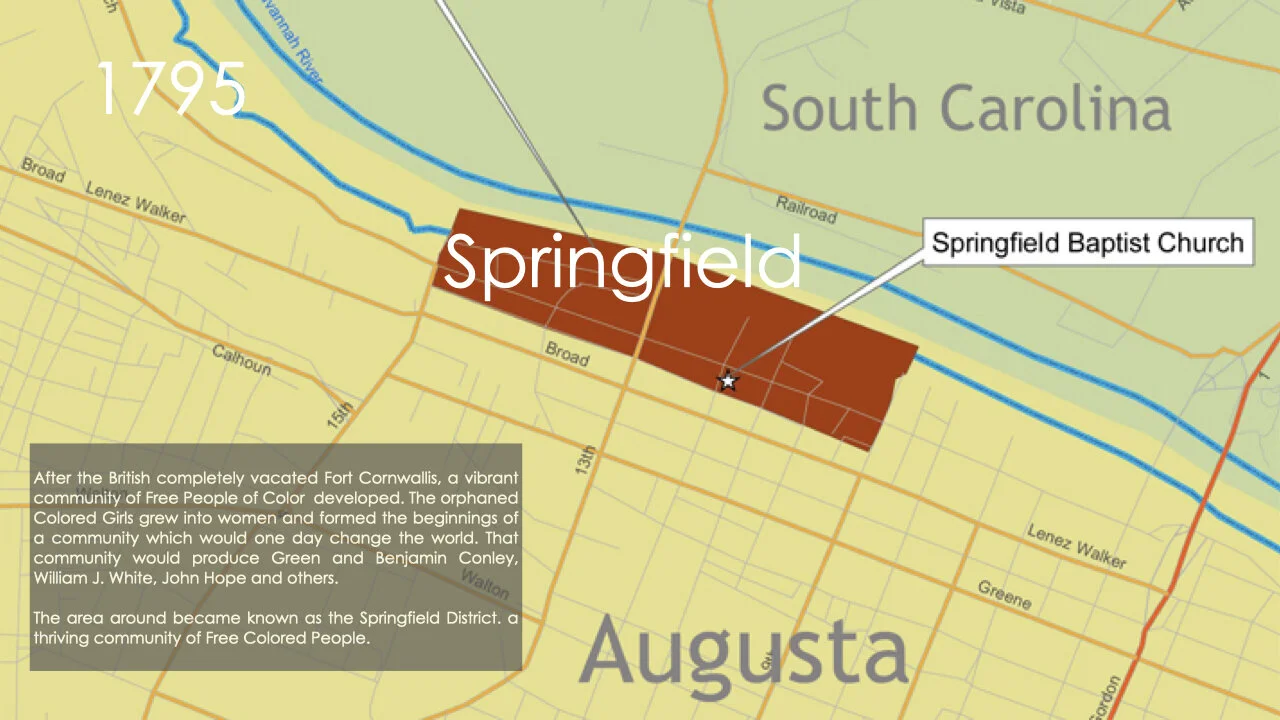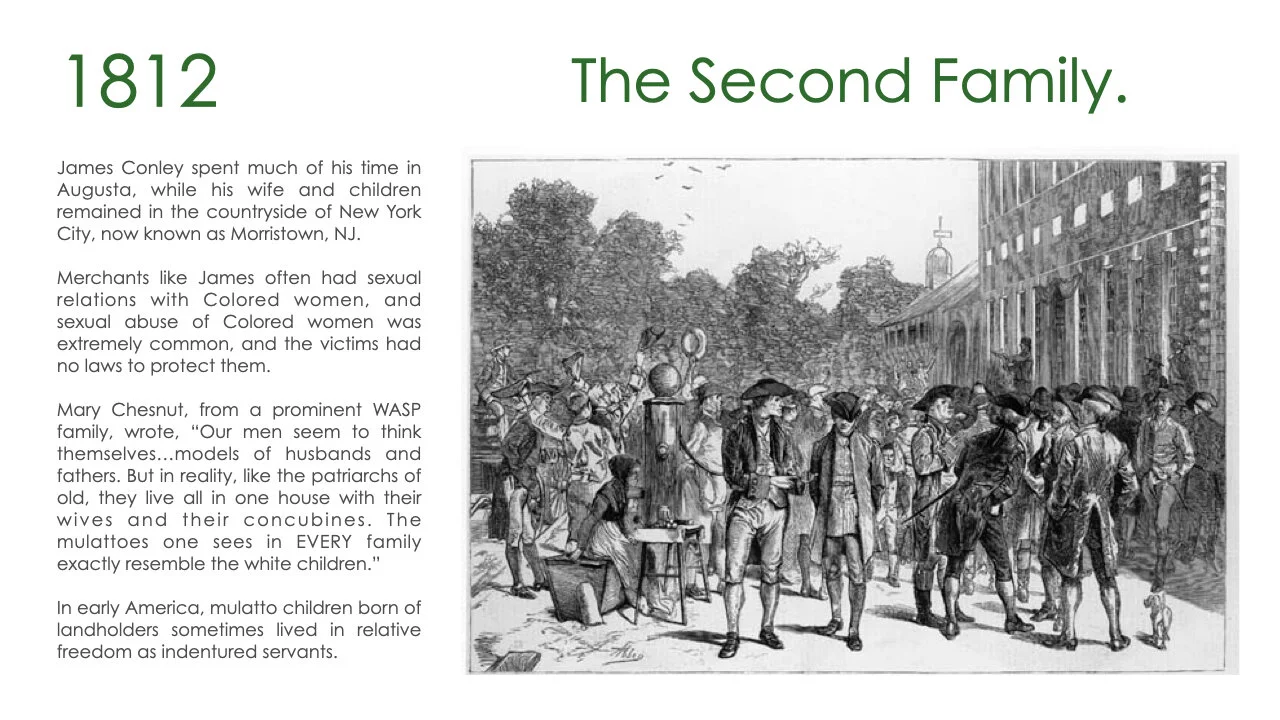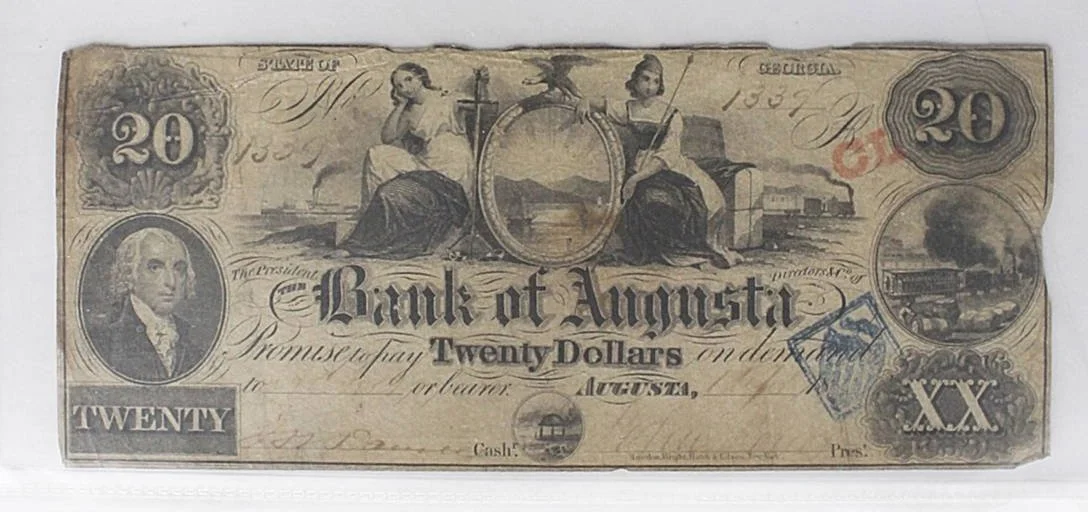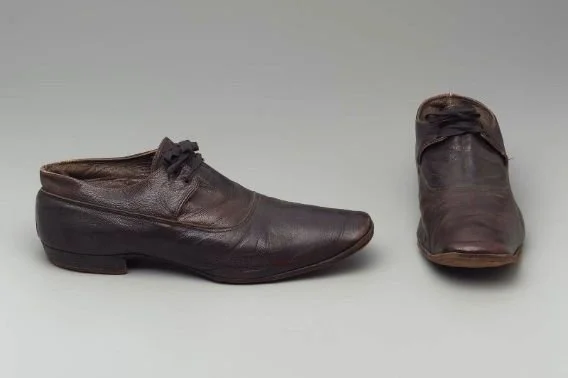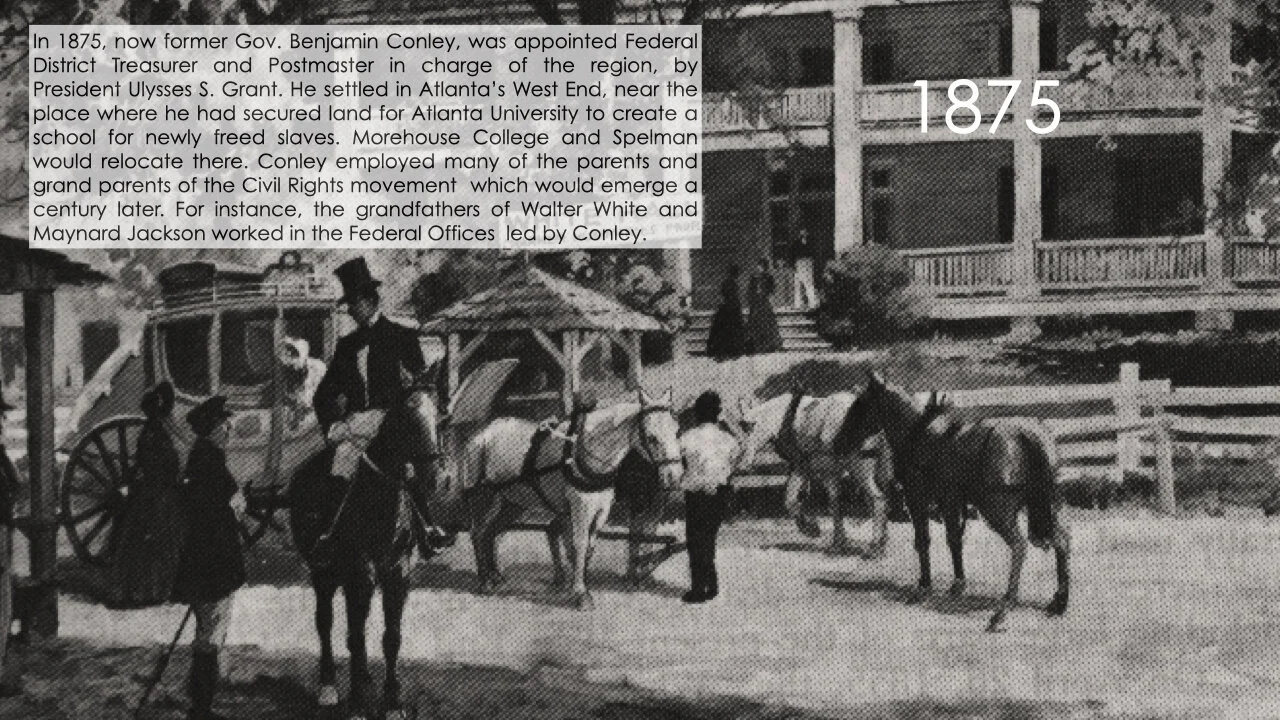BENJAMIN CONLEY
GOVERNOR AND STATE SENATOR(1815-1886)
Benjamin Conley was born in 1815, the son of James Conley and an unconfirmed mother.
He was a successful businessman and banker, turned politician. He was a member of the Augusta City Council from 1845 until 1857. He served as mayor of Augusta, Georgia from 1857 until 1859. He was a Georgia State Senator from until 1860 until 1871, and the 47th Governor of Georgia from 1871 to 1872 during the Reconstruction Era of The South following the Civil War.
President Grant appointed him Federal Postmaster of Atlanta, serving from 1875 until 1883. During this era, he was the focal point of U.S. Federal Authority in the heart of The South. His efforts and decisions helped establish the largest concentration of education establishments in Atlanta’s West End where he lived in the last quarter of his life.
ORIGINS OF BENJAMIN CONLEY
Was the son of a merchant and dry goods trader from New Jersey, who frequently traveled to the port of Augusta, Georgia when the city became one of the largest trading ports in the world.
Benjamin consistently referred to Augusta as his ‘hometown’ throughout his life. His personal letters and documents never referred to his mother. He had three brothers and two sisters, but as was common in the era, birth certificates are non-existent and confirmation is difficult.
EARLY CAREER IN BUSINESS (1830-1845)
Benjamin Conley had a close hometown affiliation with Augusta. It is assumed he traveled back and forth from Georgia to New Jersey with his father from a young age. Like most port cities, it was a tolerant environment, and race-mixing was more open than in the rest of Georgia. In 1828, Benjamin Conley appeared to settle into Augusta at 14-years-old, his octoroon appearance a minor issue. As a teen, he was a stock keeper, then clerk, for the then influential Force Family of South Carolina and Georgia.
Benjamin eventually began trading on his own account as a dry goods merchant. Among his endeavors, he became a large regional trader in shoes.
Shoes from the 1840s, when Benjamin Conley dominated the market in shoes for the region.
Augusta grew into a major economic center in the Antebellum South. From 1800 until the start of the Civil War in 1860, it became a powerful trading center. Shown at left, a bank note from Augusta. The United States did not have a single national currency until the country re-united following the Civil War.
BUSINESS (1845-1860)
In 1842 he married Sarah (Sallie) H. Semmes and had three children, including John L. Conley (1845-1898), Mary Semmes Conley (1848-1851), and Morris Conley (1862-1925). His business career soared, making him wealthy and prominent resident of Augusta.
In 1842, the year of his marriage, the city known as Atlanta today was still a desolate outpost known as Terminus, and later Thrasherville, after a local merchant who built homes and a general store in the area. A short time later, the town had six buildings and 30 residents and was renamed Marthasville. Benjamin Conley became president & CEO of the Macon and Augusta Railroads which would eventually connect Augusta, Forsyth, Macon, and Savanah to Marthasville. The new bustling city, now connected to Augusta, Savannah, Chattanooga, and Nashville, would be re-named Atlanta. Benjamin was in the right place at the right time. Benjamin Conley had a close hometown affiliation with Augusta. However, his major economic windfall and eventual attachment to Atlanta would come from his role in the railroads connecting Augusta to Atlanta.
With his business success as a merchant and corporate secretary for the Force Family, even won him enough popularity to serve as mayor of August in 1857-59.
Benjamin Conley, uncle of Reverend Benjamin Conley. Shown in his prime as a young merchant.
Green Conley, brother of Benjamin Conley and grandfather of Benjamin Conley, the 2nd.
Across the border in Alabama, Benjamin’s brother, Green would acquire his first plot of land in 1850. While caucasian in appearance with blazing red hair and green eyes, Green could not pass as effortlessly as Benjamin. For this reason, Green made his life far from the bustling city of Augusta where he was born, and sought his future in the wilderness that would become Alabama where he could better determine his own fate.
CIVIL WAR ERA(1860-1865)
Benjamin Conley was a devout ‘Unionist’ sworn to loyalty for the North. He believed in President Lincoln and his cause. In a cruel twist of fate, his wife’s Semmes Family was prestigious slave-holding family loyal to the South beyond measure. By the time of the Civil War, Augusta was one of the few manufacturing centers in the South, and its water transportation canal system made it a vital resource for the newly formed Confederate States.
Because of his alignment with The Union and Lincoln Republicans, and his rumored octaroon status, Conley fled Georgia to rural Alabama under the grave threats to his life. His meetings with his brother Green were secret, as Confederate Troops threatened to kill Benjamin should he be found.
1865 to 1875
The years following the war were indeed a tumultuous time for Benjamin Conley. On one hand, his services were greatly in demand as president of the Macon and Augusta Railroad. His wealth grew as the Federal Government reconstructed The South. By 1871, the railroad proved unstable with important post-war cities never connected to one another. Further, the Republican party was in shambles; Governor Bullock fled the state to avoid impeachment; and Conley, as president of the Senate, became governor at the end of October. Unable to prevent a new election Conley served only until James M. Smith’s inauguration January 12, 1872.
It is an understatement that the original Colored Aristocracy of old Atlanta owed a great deal to Conley’s effort and advocacy. The success of the ‘Black Aristocrats’ across the country in the 1900s was fueled by Atlanta’s Talented Tenth at its zenith.
Conley played an important role in the establishment of Atlanta University, and the resettlement of Morehouse College and Spelman College. As Governor and President of the State Senate, he was an important negotiator with John D. Rockefeller in purchasing the land on which those schools now sit, then giving generously to the institutions.
As Postmaster of the Atlanta Federal District, Conley hired many newly educated people of color who had attended Atlanta University, Morehouse College, Spelman College, Clark College, and the Gammon Theological Institute as postal workers and other clerical roles for the federal government. Among those Conley hired under Conley’s leadership were: George White, the father of Walter White longtime leader of the NAACP; and John Wesley Dobbs, the grandfather of Maynard Jackson.
Dozens of African American men—including many former slaves—were hired as railroad porters. The job of a porter was to assist passengers at railway stations, and to handle the loading, unloading, and distribution of luggage and parcels. African American women were hired to attend to women on board the trains. The railroad porters helped create the black middle class in the United States.
1875 - POST RECONSTRUCTION
In 1875, Benjamin Conley was appointed Postmaster of the Atlanta Federal District.
In the period immediately following the Civil War, Federal Postmasters were an important symbol of federal government authority. Regional Postmasters during Reconstruction played a complex and significant role in restoring infrastructure and services ranging from delivering official documents to collecting customs payments and serving as chief tax collector.
Benjamin Conley was extremely productive in this era. As Reconstruction fell apart, withdrawing important protections and economic opportunities for newly freed black citizens, Conley made important strides for the community.
1880 to 1886
From 1875 until the end of his life, Benjamin Conley lived in Atlanta’s West End, close to the Atlanta University Center that he helped relocate to its current site and evolve into four-year, degree-granting institutions in 1876.

